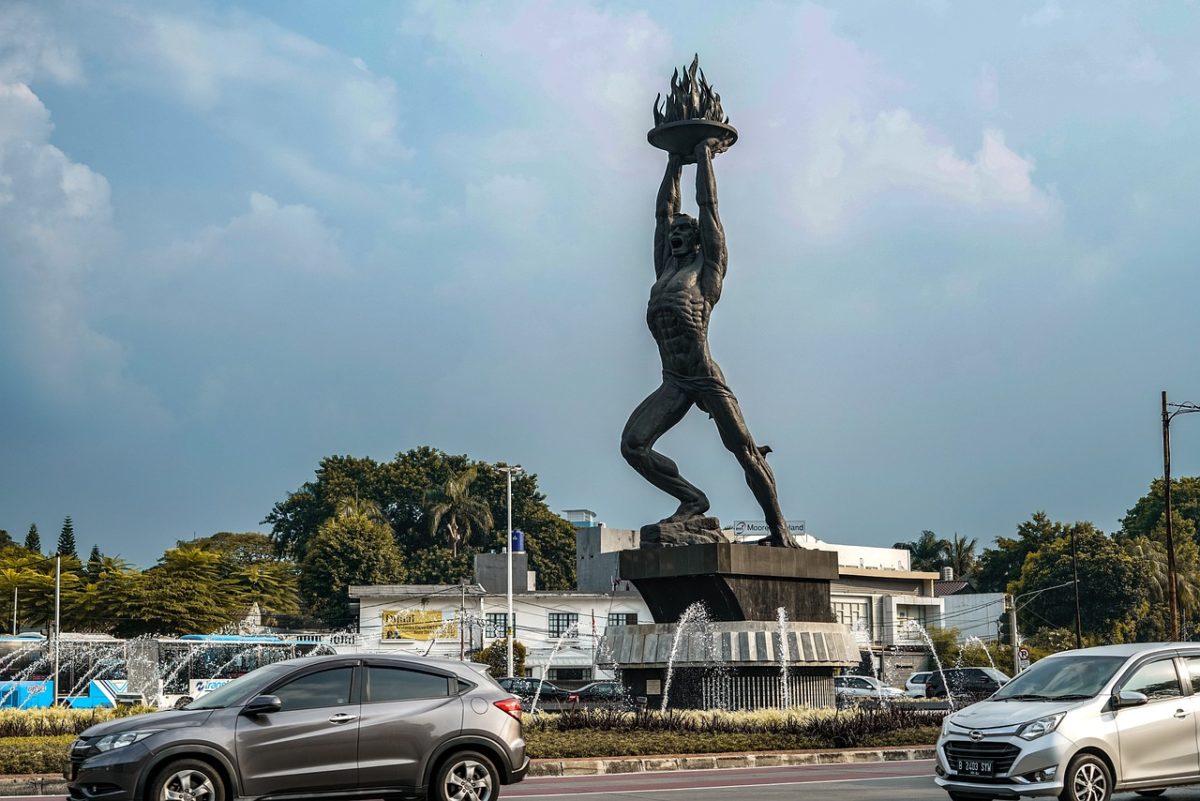Summary
The 2024 Indonesian presidential election will involve a complex interplay of economic challenges, political legacies, and the rising influence of young voters.
- The Economy: The main worries for the people in Indonesia are inflation, unemployment, and economic growth. These problems have got worse because of global events like the US Federal Reserve’s monetary policy and the war in Ukraine.
- Political Dynasties: Political dynasties have also become a critical issue, with President Joko Widodo’s son running as a vice-presidential candidate, sparking debates about the role of political dynasties in Indonesian politics.
- Youth vote: Young voters, including Gen Z and Millennials, will play a significant role in the election, with their concerns about employment and climate issues influencing their voting decisions. The use of social media platforms like TikTok in political campaigning is also indicative of a shift in election dynamics.
Details
The 2024 Indonesian presidential election, scheduled for February 14, 2024, presents a highly significant political event, as it marks the end of President Joko Widodo’s term, who is constitutionally barred from seeking a third term. It is set against a backdrop of various significant issues, with economic challenges being at the forefront. The three primary economic concerns for the Indonesian populace are inflation, unemployment, and economic growth. These issues have been exacerbated by global events such as the US Federal Reserve’s monetary policy and the ongoing war in Ukraine, which have influenced energy prices and subsidies, impacting Indonesia’s recovery from the Covid-19 pandemic.
Political dynasties are another critical issue dominating the campaign, with President Joko Widodo’s son, Gibran Rakabuming Raka, running as vice-presidential candidate to Prabowo Subianto. This development has led to debates about the role of political dynasties in Indonesian politics, especially considering President Widodo’s non-elite background and his earlier stance against traditional political power structures.
The construction of a new capital, Nusantara, in Borneo, is also a controversial topic. This ambitious project, closely linked to President Widodo’s legacy, has been met with varying responses from the presidential candidates, particularly Anies Baswedan, who has expressed opposition to the current ruling party’s policies.
Another key factor in the election is the significant role of young voters, including Gen Z and Millennials, who constitute a considerable portion of the electorate. Their concerns, such as employment opportunities and climate issues, are likely to influence their voting decisions. Additionally, the increasing use of social media platforms like TikTok in political campaigning indicates a shift in the election dynamics, catering to the preferences of a younger, digitally connected electorate.
The election is crucial, as it will determine the direction of the world’s third-largest democracy and largest Muslim-majority country. Each of the candidates brings unique perspectives and policies, which will shape Indonesia’s domestic and international agenda. Current polls suggest Prabowo is leading, but the dynamics may change as the election approaches.
The main contenders
1. Prabowo Subianto:
- Background: A former special forces commander and a veteran in Indonesian politics, Prabowo is making his third run for the presidency. He comes from an elite family and has a substantial following despite past allegations of human rights violations.
- Policies: Known for his nationalistic stance, Prabowo has in the past aligned with conservative Islamic groups and political parties. As a defence minister, he has shown pragmatic approaches, particularly in defence relations with China and the West.
- Campaigning: He has been engaging with China as the defense minister and was well-disposed towards the AUKUS agreement. Prabowo’s campaign might benefit from the tacit support of President Widodo.
2. Ganjar Pranowo:
- Background: A former governor of Central Java and a member of the ruling Indonesian Democratic Party of Struggle, Ganjar has gained popularity as an outsider similar to President Widodo.
- Policies: His policy approach is seemingly domestically focused, given his background as a regional governor. He is associated with the PDI-P party, historically linked with the non-aligned movement, indicating a potential direction for his foreign policy.
- Campaigning: Ganjar is popular on social media and among young voters. He has faced challenges, such as his stance on Israel’s participation in an under-20 football World Cup, impacting his poll ratings.
3. Anies Baswedan:
- Background: The former governor of Jakarta, Anies is an academic and politician with moderate Islamic views. He has gained popularity for his Covid-19 response but faced criticism over handling flooding in Jakarta.
- Policies: Anies has focused on economic collaboration, particularly in technology and infrastructure. He aims to balance economic partnerships between the West and China.
- Campaigning: He has sought to win votes from harder-line Islamic conservatives. His international outreach has been positive and reassuring.
